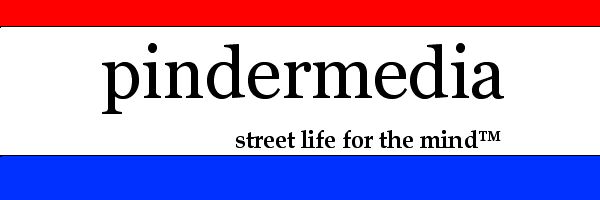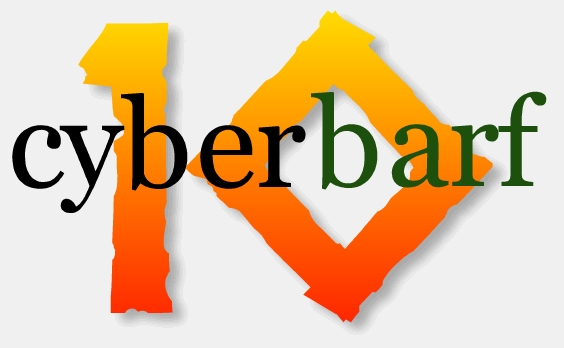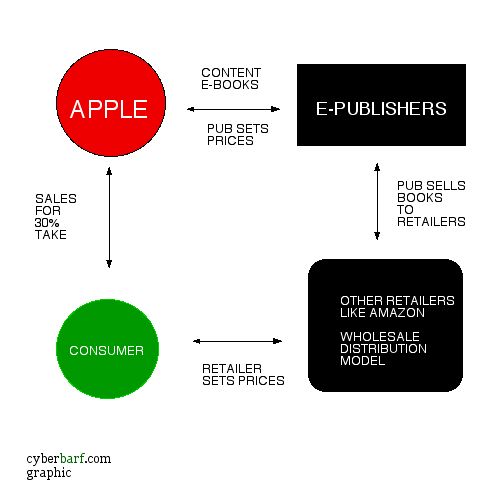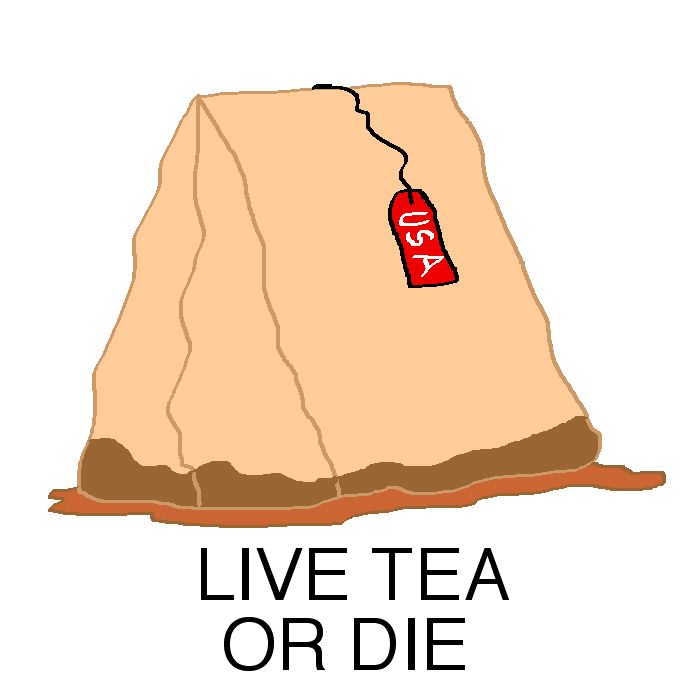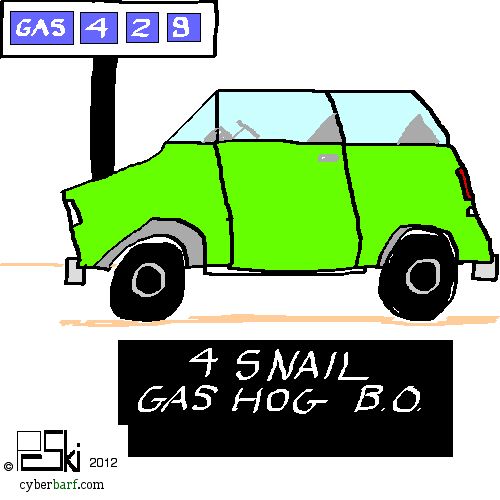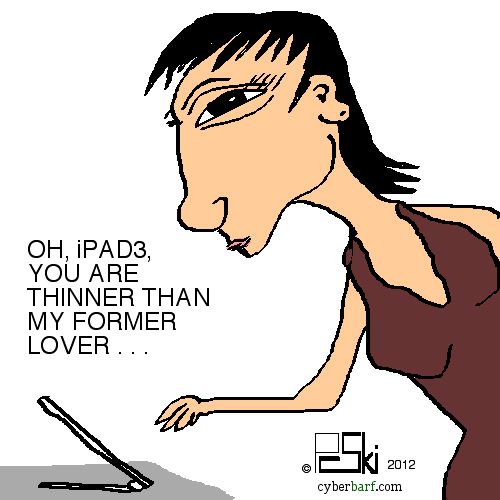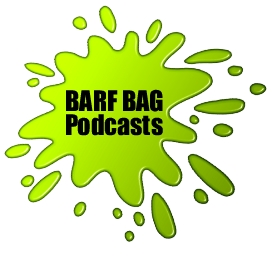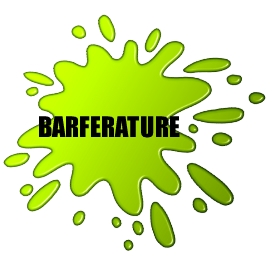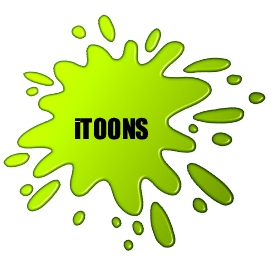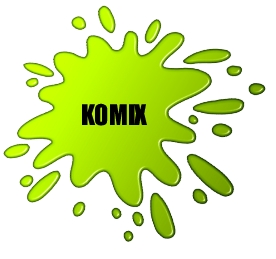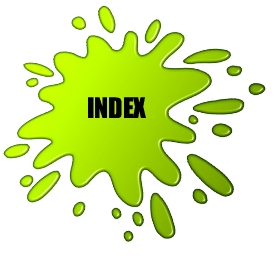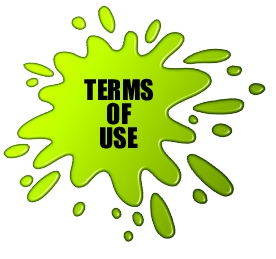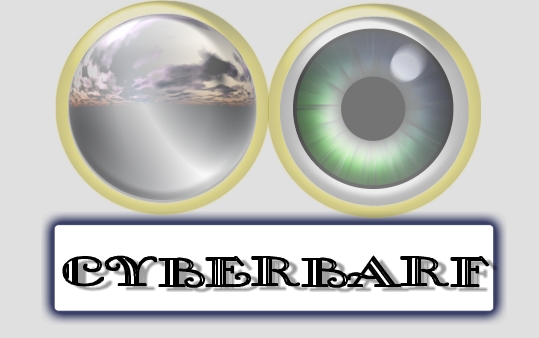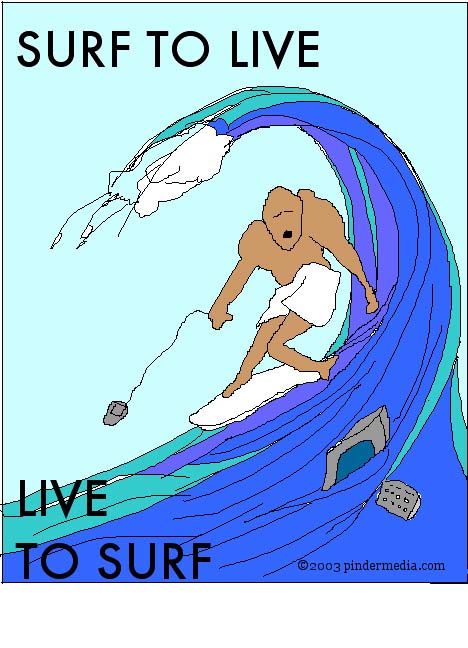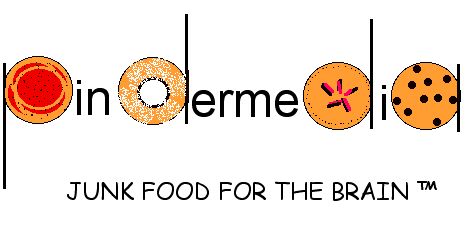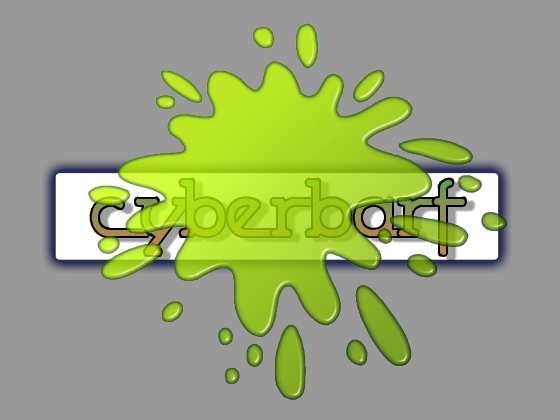|
CYBERBARF.COM
|
|
EXAMINE THE NET WAY OF LIFE
THANK YOUR FOR YOUR CONTINUED SUPPORT. CYBERBARF |
APRIL, 2012 IN THIS ISSUE: POST-PC WORLD FEDERAL CASE ABOUT NOTHING THE END iToons WHETHER REPORT
e
|
|
cyberbarf EXAMINE THE NET WAY OF LIFE |
|
cyberbarf POST-PC WORLD ESSAY With due respect for new CEO Tim Cook, and as a long term content Apple shareholder, when he stated that the iPad was “the poster child of the post-PC world” it sounded like the ancient astronomers screaming that the “Earth is flat!” He further stated that the PC (personal computer) was now merely “a device.” A device for what? Changing oneีs automobile oil filter? It is one thing to actually have a groundbreaking, game changing, world altering piece of technology, like the original personal computers which can set off permanent, deep, lasting and monumental changes on the way people act, think, work, communicate and play. The new iPad, and every other tablet computer on the market, does none of those things. In less than thirty (30) years, the personal computer has dramatically changed the office landscape and home productivity. Extinct species of work tools like the typewriter, carbon paper, mimeograph machines and copy machines have been replaced by desktop or laptop computers, “save as” commands, multiple prints on a print screen and PDF files for digital distribution of work. The PC drove innovation in how people now communicate through the web: email, Skype, digital photographs, podcasts, videocasts, web pages, instant messaging, and social media. Literally, the entire world is at oneีs finger tips of a keyboard, a mouse and an internet connection. The tablet computing world has not replaced any of the revolutionary advances of the PC. Neither has the iOS or mobile computing platforms such as Android or Blackberry. A clever interface cannot substitute for heavy lifting computer power. Only a fool can think they can run a normal business from within a smart phone. So the new devices, the smart phones and the tablets, were a niche computing platform originally thought to placate gamers and casual wi-fi home net surfers with a non-PC interface of using oneีs finger(s) like a kindergartner in his first art class. But given an opportunity to add independent applications, the end consumer took the iPad into the Wild, the real world. Hospitals thought it could be used to replace patient charts and files. Businesses thought it could replace delivery and inventory clipboards. Some educators thought that the device could be used to replace heavy textbooks for students. So it was the people who took a rather mundane computer with no keyboard or mouse, and ran with it in imaginary new ways the manufacturers never dreamed of: leaving them to play catch up with their own productivity software tools. But none of the new innovative ways to use a tablet has made office managers, business professionals and network system operators to throw their desktop PCs out into the trash compactor. All these new applications are still tethered to the old PC infrastructure. So the talk of a “post-PC world” is a misnomer. It has to be. Otherwise, the trend would play out that tablets and smartphones would be merely pacifiers for the permanent underemployed generation of coffee house clerks and pizza delivery boys. No doubt a rugged iPad with a free simple game given to a whiny, attention starved four year old could buy a frayed homemaker a 90 minute rest period from parenting but it is frightening that will be extrapolated to encompass the entire working class population. As it stands today, you are not going to try to type a 25 page business report on your iOS device. People will try; and software developers will say that they have word processors, spreadsheets, integrated publishing solutions available to make it all happen. Apple appears hellbent on trying to get the general public into the mind set that their iOS products are the future of Everything and that the future is Now. This focus will probably decrease the emphasis on laptop and iMac hardware and software development which still are the core computing centers for the office and home. The de-emphasis on the Personal Computing platform can be seen on the downgrade in current software applications for the desktop and the push to make the desktop operating environment more mobile OS. The fast personal computer and keyboard/mouse combo has made the American office worker the most productive in history. A change to the mobile iOS system will definitively show down input and output because the iOS platform itself is not conductive to heavy office lifting. How many productive office workers do you know who use just two thumbs? And there is a semantic issue with calling the new iPad the “poster child” of anything. Being a poster child is not always a representation of a good thing. Yes, the mobile iOS systems are the cool kids that have moved on the corporate block. And yes, they are revenue machines. They are the talk and spit of Wall Street analysts. But the iPad or any other tablet or mobile device is going to be as important as the current computer network base. To claim the old PC World is no longer relevant is like saying humans have given up breathing oxygen in favor of vegetable soup.
cyberbarf MURMUR:LOST SOULS REAL NEWS KOMIX We continue our new graphic novella with Part Four.
cyberbarf FEDERAL CASE ABOUT NOTHING ARTICLE The federal government has been going after any industry that is successful. It is a classic “follow the money” bloodhound story. But a recent investigation into Apple's new iBook program is very puzzling. There have been complaints that Apple has been using its massive digital presence and distribution power to an unfair advantage over its business rivals. But in many early stories, there is a disconnect. When textbook publishers cut a deal to cut their digital books to a maximum price of $15, students and parents breathed a sigh of relief. The cost of education is high. Any relief in the cost of educating students should be a welcome advance. In exchange for using Apple's successful distribution network (iTunes/AppStore), the publishers agreed to give Apple a 30 percent share of the sales price of their digital books. This is the Apple model which it has used to sell digital products, like music. Since Apple is a retailer, it has the right to determine which products it will stock in its stores. Any retailer, from a grocer to a department store, buys whatever it seems it can resell for a profit in its market. A content provider has no right to push through the front door of any bookstore and demand the merchant to sell its book list. So Apple and the e-publishers cut a deal that both sides thought was fair. And e-publishers were allowed to sell their content at other retailers, whether digital sites or in bound form at local bookstores. So it is not really an anti-trust question that Apple was somehow conspiring to monopolize the textbook market. In fact, it was the book publishers coming to Apple to expand the publishers textbook markets.
The Apple business model (called an agency model) was different than how publishers sold their wares. Under the wholesale distribution model, publishers sold their books to retailers, and then the retailers would stock the books at set the price that each copy would be sold at. In some contracts, publishers would guarantee a certain level of sales, and if not met, a return policy. In some ways, publishers had higher risk in the sunk costs of printing, binding and transportation in distribution before even wholesaling a copy of a work. In a digital program, those sunk costs are almost non-existent. In the wholesale model, a suggested retail price may be printed on a book's cover. Let's say it is $30.00. The wholesale price to the retailer may be half that amount. The retailer takes it at $15 cost, the merchant can sell it at $30, $25, or even $20 and still make a profit. However, a publisher sets the retail price under the Apple system. So a $30 sale price equals $21 to the publisher not the $15 wholesale price, a forty percent gain. So the e-publishers took the Apple model to other digital retailers and said “we want to get rid of the wholesale system.” Those traditional resellers objected because they want to control the end price to consumers. Because the wholesale model gives the retailer the ability to “undercut” the price of competitors. Competition is good. It creates market prices. For a publisher to get his $15 price in the old system, it would have to set the e-book price at $21.50 in the Apple store. But that leaves other retailers $6.50 range to undercut the publisher's price. Also, some retailers do not want to give up final pricing. Under the old system, the retail price for a blockbuster could yield a 100 percent profit margin. Why would a savvy retailer miss out at that opportunity to only take a 30 percent of the pie? Once Apple puts the digital files in its store data base, it does not care what other retailers set their prices for the same content. Apple does not care if the book sells for $30, $21.50, or $10 - - - it receives a flat 30 percent. For Apple, it is a simple accounting system that works. So it is not Apple that is at fault here with the complainers. It is the e-book publishers who are demanding other retailers to change to the “Apple model” for selling their digital content. And many retailers do not want to change to the Apple model, for one good reason: Apple is better at its distribution model than any other company on the planet. But the government thinks that Apple's market might and its terms with the publishers is adversely affecting other retailers. The government is looking into the allegation of conspiracy to set e-book retail prices. Apple and the publishers deny the allegation. Apple's business model is the same one used for music distribution. The record labels never claimed Apple was being monopolistic or destroying the market with other traditional or digital distributors. Content producers are free to start their own distribution sites or networks. You don't have to go to Apple to sell a song or a book. cyberbarf THE END KNOWLEDGE Under the motto of “as Knowledge grows so do We,” the publishers of the Encyclopedia Britannica have decided to stop printing bound copies of their collective knowledge of subjects. The Britannica set was the authoritative volumes for any student studying basic or tangential subjects. Each article was written by an expert in the field. Then ever article was fact checked and verified by the editors. The credibility was never in doubt when one quoted the Encyclopedia Britannica. It was an expensive investment in a family's knowledge base. The last set cost $1395 US. However, thirty years plus ago, the volumes were substantially more expensive. And one needed a large sturdy book shelf to house the hefty volumes. Each volume weighed more than four obese house cats. A set of Encyclopedia Britannica housed more information a high school or college student could absorb. The articles were written in the deep jargon and scientific language of the experts. One needed to have a weightlifters Dictionary to decode some of the words used in the articles. So the struggle to comprehend the master works by itself was part of the traditional educational process in America. Learning was not supposed to be easy; it was hard. The type was small agate so eye strain was common for a student on a late night deadline for a term paper. And that was one of the reason's why families bought sets of encyclopedias for their home libraries: there was no Internet or wikipedia back then. Public libraries closed at reasonable hours. If one had access to knowledge at home, their children would not be left behind in the classroom. Parents valued education spent money on the tools for their children so they could succeed in spite of themselves. It was only a matter of time before the dinosaur paper volume publishers of encyclopedias would succumb to the digital age. In 1999, Encyclopedia Britannica put a summary of their volumes on a Netscape searchable CD. Type in a search word or phrase now replaced the Index Volumes of the original. Next, hyperlinks to more information on the EB website further doomed the printed page. For students took to technology like moths to a flame; a suddenly a generation of “cut and paste” learners had no time reading indexes and cross referencing articles in several different encyclopedic volumes. So the passing of the Encyclopedia Britannica in print is another tombstone in the technology graveyard. A sad case that the authoritative written word may be the next victim of the collective decline of civilization.
|
|
THE PINDERMEDIA STORE IS FULL OF FUN TEE-SHIRTS AND SELECTIONS. FUN . . . . VALUE . . .. FUN . . . . VALUE! GO FOR IT!
THE POLITICAL SEASON IS HERE!
SUPPORT cyberbarf VISIT THE CYBERBARF STORE! Prices may vary depending on sales, allotments, inventory. |
|
iToons
|
|
cyberbarf THE WHETHER REPORT |
cyberbarf STATUS |
| Question: Whether the high profile arrests of international hacker groups will decrease the amount of cyber-attacks in the U.S.? |
* Educated Guess * Possible * Probable * Beyond a Reasonable Doubt * Doubtful * Vapor Dream |
| Question: Whether major league baseball's extra playoff game this season is a cynical attempt to push revenue to its streaming video and MLB.TV? |
* Educated Guess * Possible * Probable * Beyond a Reasonable Doubt * Doubtful * Vapor Dream |
| Question: Whether Apple's new iPad will allow it hold its tablet marketshare dominance? |
* Educated Guess * Possible * Probable * Beyond a Reasonable Doubt * Doubtful * Vapor Dream |
|
cyberbarf EXAMINE THE NET WAY OF LIFE |
I can take it . . . the tougher it gets, the cooler I get. Richard M. Nixon |
|
cyberbarf
THE STEAM PUNK SPECIAL EDITION featured new Music from Chicago Ski & the (audio) Real News: (mp3/4:14 length)
EXAMINING THE NET WAY OF LIFE cyberbarf™ distributed by pindermedia.com, inc. |
|
SUMMER IS COMING FAST. SURF'S UP WITH THIS CLASSIC T-SHIRT!
FEATURING: THE REAL NEWS IMPACT EDITORIAL CARTOONS WRIGLEYVILLE WAR POLITICS ENDORPHIN RUSH THE DARK ABYSS RANDOM ELECTRONS SPECIALS
FEATURING: THE REAL NEWS ARCHIVES CARTOONS MADAME'S TEA HOUSE THE BAR EXPLORE THE CITY SCAPE UNDER CONSTRUCTION SURPRISES ESTORE SPECIALS
|
REWIND
LOST
AFTER
A
FULL YEAR
ON
LOSTHEORY
cyberbarf
Distribution ©2001-2012 pindermedia.com, inc.
All Ski graphics, designs, cartoons and images copyrighted.
All Rights Reserved Worldwide.
